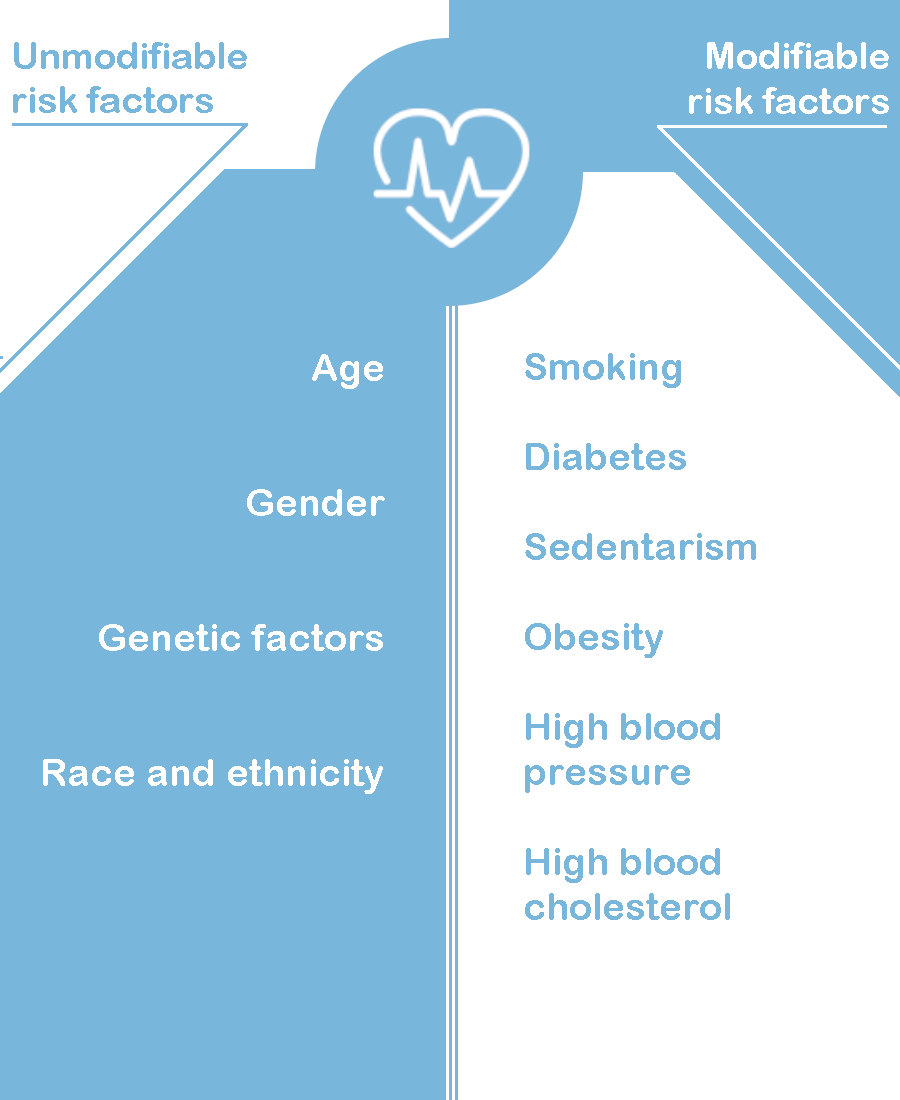
Hereditary cardiovascular diseases
Determine your risk of inherited cardiovascular disease.
in 2015 were due to cardiovascular disease.(1)
Age, cholesterol, diabetes, smoking, and obesity are cardiovascular risk factors.(2)
are undiagnosed, according to a global expert panel report.(3)
Each offspring of an affected person has a 50% chance of inheriting the disease.(4)
- Identifies variants in 90 genes related to hereditary cardiovascular disease:
- Familial hypertrophic cardiomyopathy
- Right Ventricular Arrhythmogenic Cardiomyopathy
- Familial dilated cardiomyopathy
- Uncompacted left ventricular cardiomyopathy
- Aortic Aneurysms of Marfan and Loeys-Dietz Syndromes
- Restrictive cardiomyopathy
- Long QT syndrome
- Brugada Syndrome
- Catecholaminergic polymorphic ventricular tachycardia
- Idiopathic ventricular fibrillation
- Short QT syndrome
- A genetic counsellor approved by medmesafe will accompany you before and after the analysis by video consultation.
- Counting from the reception of the sample in the laboratory.
- Only available in Spain at the moment
- Collection of saliva.
- Whole exome sequencing (WES) with illumina platform (HiSeq X10, NovaSeq 6000).
- Average coverage 110x sequencing >97% at ≥20x achieving a 300x average coverage in the genes of the panel.
- CLIA-certifed laboratory (CLIA #22D2089381).
- CAP accreditation (College of American Pathologists).
- All the reports are reviewed by an expert medical team with more than 10 years of experience in Whole Genome and Exome sequencing, including members of the Personal Genome Project of Harvard Medical School.
- Possible Outcomes:
- Pathogenic, probably pathogenic and of uncertain significance variants are included in the report.
Testimonials
Rod Paley

Graeme McKenzie

Daniel Crigan


- The genetic study of these entities is key to providing information on the prognosis and clinical management of hereditary heart diseases.
- The knowledge of the carrier state of a mutation that predisposes to develop certain diseases is translated into benefits at different levels: medical controls adjusted to the risk, possibility of taking measures that allow us to prevent the appearance of the disease and, if affected, a potential therapeutic benefit.
- In addition to receiving information about the risk for your offspring and other relatives.
- You have a family history of cardiovascular disease.
- Identifying the genetic alteration can save lives. Therefore, after identifying the genetic cause in the index case, it is very important to study family members who are at risk of developing heart problems in order to address medical management and follow-up.
- If you have a personal or family history of arrhythmia, cardiomyopathy, sudden death, cardiac arrest with no known cause, aortic alterations, hypercholesterolemia, pulmonary hypertension or congenital heart disease, you are a candidate for a genetic study.
- You have no history as a screening and preventive measure.
How does it work?
-
Select desired analysis and a specialist, then you have a video-consultation.
-
Receive a sample collector kit at home that will be picked up by a courier.
-
One of our partner labs makes the analysis.
-
Your healthcare professional presents your results via videoconference.
You can help by sharing this information with your contacts or doctor







 Download results report
Download results report

.jpg)
